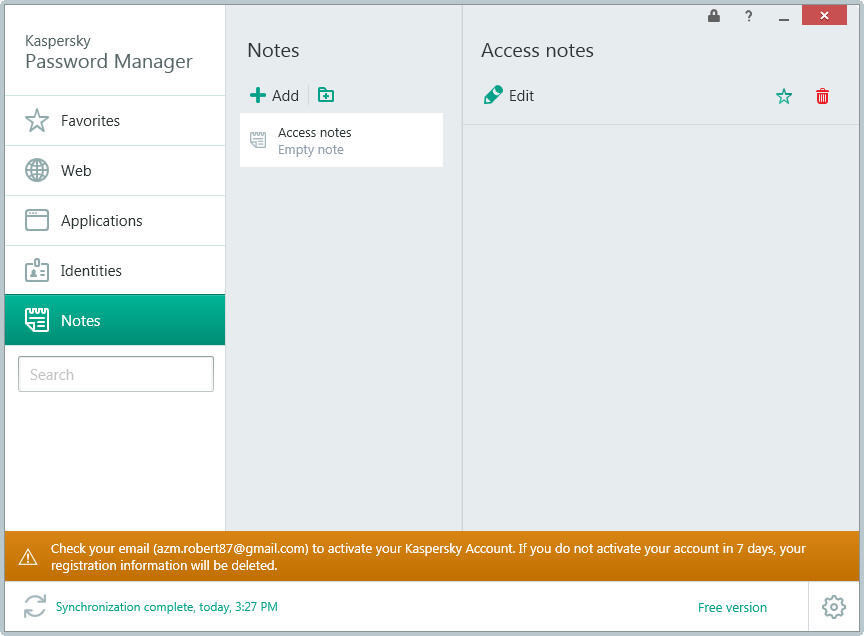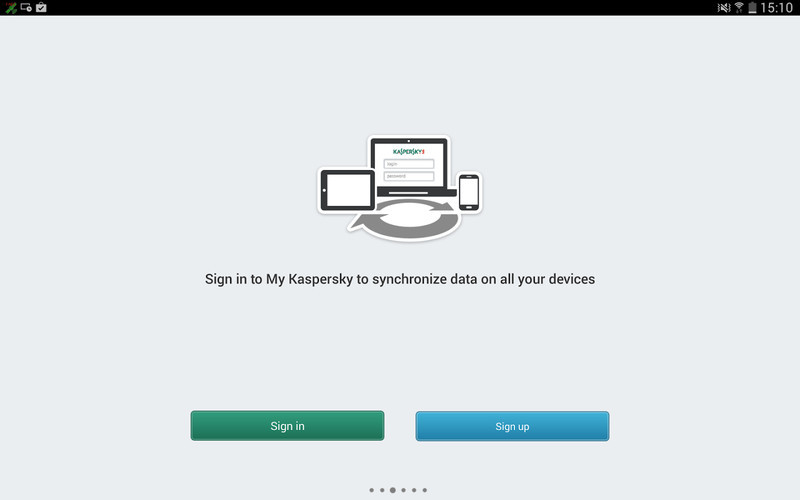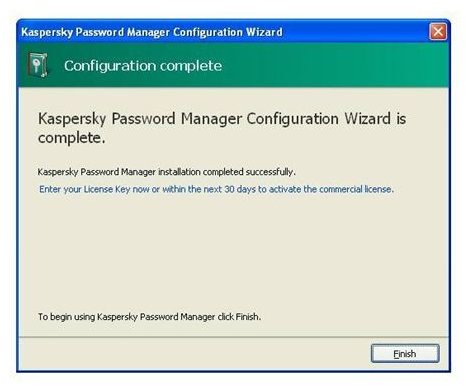

- #Kaspersky password manager that generated passwords generator#
- #Kaspersky password manager that generated passwords crack#
“Kaspersky has fixed a security issue in Kaspersky Password Manager, which potentially allowed an attacker to find out passwords generated by the tool,” a Kaspersky spokesperson told IT Pro. This means that if every user generated a password at the same time, they would see the same generated password.īédrune suggests the result is that every password could be brute-forced, especially if hackers know the creation date of an account.
#Kaspersky password manager that generated passwords generator#
The only source of entropy the password generator used, too, was time, and there was a one-second animation between generated passwords. Our recommendation is, however, to generate random passwords long enough to be too strong to be broken by a tool.” “However, if an attacker knows a person uses KPM, he will be able to break his password much more easily than a fully random password. “We can conclude that the generation algorithm in itself is not that bad: it will resist against standard tools,” Bédrune said. The key to building strong cloud security and avoiding the risk of vendor lock-in

As they’re biased to some extent, this can be abused to generate the most probable passwords generated by this tool.

If, however, an attacker knows the password has been generated by KPM, they can adapt their tool around the model KPM uses to generate the password.
#Kaspersky password manager that generated passwords crack#
Passwords generated by KPM will be far in the list of candidate passwords tested by standard cracking tools, so attackers will likely be waiting a long time before they encounter a KPM password when attempting to crack a list of passwords. The method has been implemented to trick standard password cracking tools, according to Ledger Donjon researcher Jean-Baptiste Bédrune, which try first break probable passwords, such as those generated by humans. Once any given letter is generated, it heavily skews the probability of other letters appearing in the same password. The generation process is a complex method but effectively means that letters such as q, z and x are more likely to appear in passwords generated by KPM than the average password manager.


 0 kommentar(er)
0 kommentar(er)
